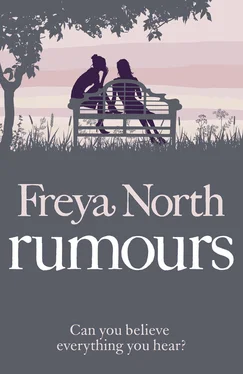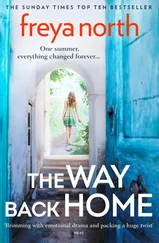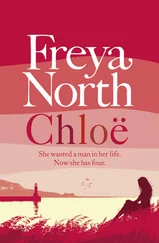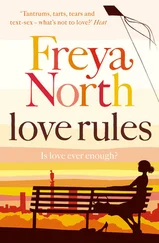Finally, she was home. And then she realized she’d forgotten her keys. No use knocking, it was Mrs Biggins’ day off. She went to the side of the house knowing the back door was unlocked because it was so tricky to lock that they’d given up years ago and just used the bolts, but she doubted it was bolted because Mrs Biggins wasn’t tall enough to shunt the topmost one across, and both she and her housekeeper were now old enough to eschew using anything one had to climb upon in order to reach something.
There were seven stone steps leading down to the door and, through the frosted glass pane, Lydia could see the comforting welcome of the lights she’d accidentally left on in the house. Down one step, two – it was really quite chilly. Three, four, five. Finally! Six and –
She fell. She wasn’t sure why. It didn’t matter why. But her shoulder bore the brunt and she took a knock to the side of her face too. It hurt, of course it hurt. But more significant than the pain was the shock. She felt frightened and that appalled her.
Mrs Biggins, damn you and your day off! Lydia stayed still for a few minutes. Was anything broken? She’d fractured various bones in hunting accidents over the years – no, she didn’t think so. Still, she felt most unsure about picking herself up. Her cheekbone was throbbing and her fingers were numb.
Hullo? Is anyone home? What a stupid question – why would there be? Mrs Biggins was probably in Bishop’s Stortford with her daughter. Mercifully, the door was indeed unlocked and Lydia finally made her way shakily inside. She checked her reflection and noted a red mark on the apple of her cheek, growing darker. Frozen peas, she thought, going into the kitchen. And then the lights flickered. Oh dear God, no. Just wait until I have the wretched peas, would you! Flickered again. And then off.
Once again, something somewhere had fused. Even without the fall, Lydia wouldn’t go feeling and fumbling her way to the panel down in the basement. More uneven stone steps. And an ancient and hostile fuseboard in what really was a dank dungeon. Silly old cheek – it was horribly sore. Lydia clasped her way along the kitchen wall to the dresser and located a box of matches after various things fell to the floor, one of which made the undeniable sound of something thick spilling. Lighting match after match, she managed to illuminate the safest passage to the cupboard under the sink where she knew there’d be a torch. Whether or not it had a battery in it would be another matter. Luckily, it did and its soft orange beam directed her to the freezer where she retrieved the peas and placed them in a tea towel against her cheek. Really, she should phone someone – Art or Clarence. But she didn’t want to. She really didn’t. Instead, she sat in the dark in the drawing room for a while, trying to read Country Life by the waning light of the torch until she told herself she wanted an early night anyway and didn’t care for whatever it was that Mrs Biggins would have left her for her supper all the way back in the kitchen.
The longest thing about Long Dansbury village was the high street, with all other streets branching off it in short runs like the veins on a horse chestnut leaf. The high street itself, whilst not a cut-through to anywhere from anywhere, was still relatively busy in terms of traffic because along its length lay the church, the primary school, two good pubs, a Spar general store which also sold newspapers and stamps, and Michael Lazarus’s ironmongery – which was more of a museum than a shop, if the number of people who ventured into the Dickensian interior simply to look rather than to buy, was anything to go by. The houses along the high street were defined as being either at Top End or else at Back End, though in fact from the centre, which was marked by the gates and long, snaking driveway to Longbridge Hall, the high street sloped upwards to either end. But Top End had always been known as such because here the finer, larger houses sat spruce and proud, like dapper Georgian gentlemen keeping an eye on things. In comparison, like a scatter of peasant children, were the cottages which defined the Back End; some standing on their own like shy sheep, some in a chatter of four or five in short terraces. What made the high street so pretty was that all the buildings, whatever their size, had frontage. Even in winter, flowers and well-tended shrubs proudly sang forth.
Beyond the cottages, a thatch of woodland bristled to either side of the road, after which the new houses stood in an embarrassed huddle. These were, in fact, pre-war and far more sensible family homes than the old cramped cottages. But they would always be known as the New Houses in a gently dismissive way. Even the people who lived there gave their address with a slightly resigned tone.
Pride of place, not just in the village but in the wider locale itself, was Longbridge Hall, seat of the Fortescue family, the Earls of Barbary, for eight generations. It was as if Longbridge Hall had sat down so firmly, so emphatically, directly at the centre of the village, that the road to either side had been pushed upwards; rather like a portly old uncle settling himself right in the middle of a sagging sofa. The house itself was not actually visible from the high street; set some way back, its presence was nonetheless felt – the wrought-iron gates with handsome stone supports and the parade of lime trees lining the imposing driveway and heralding something undeniably grand beyond.
When Stella arrived on the Saturday morning, to meet Mrs Benton at number four Tidy Row Cottages, she couldn’t believe that, as a Hertfordshire girl, she’d never once been to Long Dansbury. Parking her car, as she’d been instructed, in the gravel rectangle opposite the Spar, she was glad to be early and she walked slowly, taking in the surroundings. In fact, she was so enthralled by the houses, she wasn’t actually looking where she was going. And Xander was so busy checking his pedometer as he ran, estimating he’d need to sprint up Back End, that he saw the woman only at the last minute.
The runner clipped Stella’s shoulder hard, sending her Elmfield Estates folder flying.
‘Oi!’ she turned and glowered, rubbing her arm indignantly.
He ran on the spot for a step or two, held his hands up in mock surrender and panted, ‘Sorry!’
‘Honestly!’ Stella muttered as she chased the scatter of sheets. ‘You could at least help.’
He jogged in an exasperated arc back to her and gathered some of the papers, thrusting a scrunch of them at her, before belting off.
As she sifted and sorted, somewhat flustered, a passer-by stopped to help.
‘Don’t mind Xander,’ the good Samaritan said. ‘He’s in training.’
‘He’s a public liability,’ Stella muttered. ‘Joggers – like caravans and big lorries – should only be allowed out after hours.’
The other woman picked up the Elmfield Estates terms and conditions and thought how Xander would have something to say about being called a jogger. ‘Do you know where you’re going?’
‘Er, Tidy Row Cottages. Number four.’
‘Mercy,’ the woman muttered and for a moment Stella wondered if there was something she should know before she remembered the appointment was with a Mrs M. Benton.
‘Mrs Benton,’ Stella said.
‘Fancy that,’ said the woman, looking Stella up and down. ‘John Denby won’t be pleased.’ John Denby’s For Sale sign had been outside Mercy Benton’s cottage for quite some time. Houses in Long Dansbury were only ever sold by John Denby. Fancy that. Wonder if they knew! She’d call Margaret as soon as she was home. See if she’d heard anything.
‘Well, thank you for your help,’ said Stella, sensing slight resistance when she tried to take the Elmfield forms from the lady.
Читать дальше












